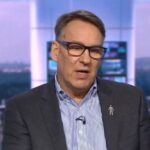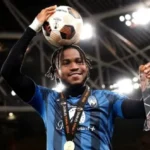Ayo Baje
“And no less damned is he who puts a friend above his country.
When I see danger threatening my people,
Whatever it may be, I shall declare it.
Our country is our life.
Only when she rides safely,
We have any friends at all.”
-Antigone(Sophocles)
One has over the decades discovered that any set of people, community or country that hates the bitter truth live to suffer for it. That perhaps explains why yours truly has kept emphasising the critical, yet deliberately foisted, fratricidal factors that have cumulatively acted as the enemies to the variant of democracy that we currently practice here in Nigeria. One of the most painful of those is the conduct of fraudulent elections through which humongous state funds are wantonly wasted, at the end of which those who are not the choices of the electorate are foisted on the people, to whom they have no iota of allegiance. Ordinarily, free, fair and credible elections are supposed to be the strong and solid foundation on which to erect the house of democracy. But when the wrong politicians mount the pedestal of power, the consequences are dire for the pauperised populace.
Such a sad situation of having politicians who are not the true representatives of the people leads to the personalisation of political power. That is more so by some egocentric and self-righteous political helmsmen, who erroneously believe that the instrument of power they wield is meant to satisfy the self, rather than the state. They brazenly step over the constitution, which should be the ground norm, through acts of infamy that satisfy their choice or that of so-called friends, not minding the consequences on the people they were elected or selected to serve.
Added to this is the siphoning of state funds through several odious antics for self-aggrandisement, or to satiate the gargantuan greed of members of their family, with scarce regard to the rule of law. With such an oddity in place, the majority are left to groan and grind in preventable poverty, yet some policymakers keep chasing the shadows of self-righteousness at the expense of the people’s pains. And it hurts those with conscience because Nigeria is so naturally endowed with oil and gas, solid minerals, fertile fields for agricultural development, places of scenic splendour as tourist attractions and of course, the best of brains that we have no reason whatsoever to languish in the pit of poverty, if not for the recurring ugly decimal of successive poor leadership.
One other querulous issue is that of ethno-religious sentiment. Going by the choice of people of one ethnic group holding plum political positions, against the federal character principle as we have witnessed over the past decade, degrades us as a people, like it or not. In fact, that brings up an all-important question.
Have you ever wondered, like my humble self, just how our crop of patriotic founding fathers would feel, should they be brought back to life to see the Nigeria of today?
Imagine if the likes of Herbert Macaulay, Sir Adeyemo Alakija, Funmilayo Ransome-Kuti, Prof. Eyo Ita, Margaret Ekpo(all of blessed memory) were returning to witness the Nigeria of the 21st Century still bitterly enmeshed in ethno-centric and religious divides. Try and also imagine Dr Nnamdi Azikiwe, Adeleke Adedoyin, Adeniyi Jones, Eric Moore, Chief Obafemi Awolowo, Abubakar Dipcharima, Aminu Kano (of the blessed memory) returning to a Nigeria steeped in preventable poverty, mass youth unemployment, insecurity, kidnapping and sundry crimes!
Certainly, these heroes of the struggle for Nigeria’s political independence would ask what has made the difference between countries such as India, Malaysia, Indonesia and Nigeria, whose independence came within the same decade or two, if not quality leadership, or the absence of it. They would cringe at the crying shame of a people still struggling for economic survival in the midst of the vast natural resources, 65 years after political independence.
They would wonder just how, like the prodigal son, our successive political leaders have squandered huge revenues from our God-given oil and gas, solid minerals, agricultural and tourism potentials and ask our leaders to explain why we are currently trapped in state and federal government debts running into trillions of Naira. The likes of Michael Imoudu, T.A Bankole, A. A. Adio-Moses,M.A. Tokunbo and T.A. Songonuga, who once ran the affairs of the Nigerian Trade Union Congress would even ask our state governors to explain just how it has become difficult to pay a minimum wage of N70,000 at a time our lawmakers cruise around in luxury automobiles, with some state governors boasting of private jets; flying over children studying under trees in their long-forgotten states! So, what is the best way forward? That is the million-dollar question.
The answer, my dear reader, is to read the HANDWRITING ON THE WALL, as it was back in Biblical times. But some of our political helmsmen, with self-serving and greed-driven agendas, rather than nationalistic principles, have blatantly refused to read it. The call for the holistic restructuring of Nigeria has reached a nerve-shredding crescendo, reverberating across the national space. But some have obstinately turned a deaf ear to it, or heed its clarion toll.
So, we caution, as we have to do under trying times such as this, out of sheer patriotic fervour, that Nigeria can no longer be run the way it is being run against the ethos of equity and justice. Nigeria can no longer be ruled by the tools of treachery, the weapons of witch-hunt and the cudgels of coercion, worse still under a democratic dispensation. Recent signs on the political horizon are scary enough. This was my position some six years ago, under the then-President Muhammadu Buhari. But are we any better today?
To begin with, not a few observers of the polity would agree that Nigerians have not been as divided along ethnic and religious cleavages as we found ourselves eight years ago. For instance, while some concerned Nigerians had expected President Muhammadu Buhari to be guided by the noble mantra of nationalism and give out political appointments to guarantee ethnic equity, those of his first term were obviously skewed in favour of the North and his political acolytes. The question again is whether it is much different from 2025?
Lest we forget, barely five months into Buhari’s second term, the issue of which of the geo-political zones to produce the 2023 presidency took precedence over how to pull Nigeria out of the ignoble status of the world’s poverty capital. Or, how to get the army of our job-seeking youth running into millions out of the violent streets. There were posters of the then Kaduna State governor, Nasir el-Rufai, adorning the walls of some cities as he reportedly geared up for the plum political post. Both Babachir Lawal and Ahmed Yerima of the Arewa Youth group were making it loud and clear that the North was not about to hand over the presidential baton to any other section of the country in the next dispensation. That was back in 2015, some ten-odd years ago. But is the situation any different as of this day?
The current wave of mass distraction is fixated on the obvious determination of the Bola Tinubu-led government to keep holding on to power against the political angling of the ADC party. Meanwhile, hunger, high inflation, youth unemployment, and insecurity remain the daily travails rather than the exception. So, the call for a holistic restructuring of the country resonates.
Let us therefore listen to the voices of reason. According to the then President General of Ohanaeze Ndigbo, Chief Nnia Nwodo, restructuring Nigeria is the answer to the waves of agitations currently sweeping across Nigeria. At a lecture titled: ‘Restructuring Nigeria: Decentralisation for National Cohesion’ delivered in 2017 at the Royal Institute of International Affairs, Chatham House in London, Nwodo said, “Our present constitution is not autochthonous. It was not written by the people of Nigeria. It was not approved in a national referendum. In jurisprudence, its effectiveness will score a very low grade on account of its unacceptability”.
Interestingly,
Back then, and in a similar tone, Asiwaju Bola Tinubu, the then National Leader of the All Progressives Congress, stated thus in 2017: “We all lined up to call ourselves Nigerians without gathering to discuss what it meant, so Nigerians should not condemn but listen and understand the agitations by the Indigenous People of Biafra .” He, however, warned against any attempt to split the country. Now that he is the president of the country, we humbly remind him to do the needful. Restructuring remains the best way forward.







